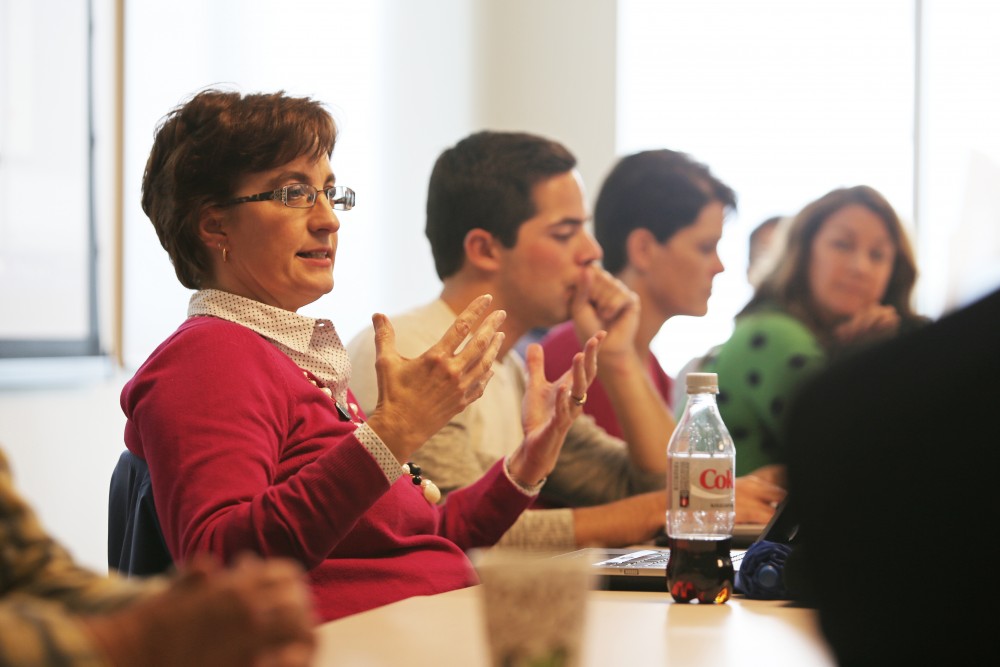Obstacles to learning

GVL/Kevin Sielaff ECS Meeting, 9.12.14
Sep 14, 2014
This fall, faculty at Grand Valley State University are collaborating on how to inspire students to be more actively engaged in their learning, especially those transitioning from high school to college expectations.
“There seems to be a difference between what the students expect of the professors and their classes, and what the professors expect students to know,” said Deana Weibel, associate professor and department chair of anthropology. “Students have the sense that ‘hey, this isn’t the kind of learning I was doing in high school. What do you guys want?’ And the professors think, ‘you should already by prepared to do this.’ That’s where I think the tension is.”
Currently at GVSU, there are 4,226 freshmen students transitioning into their college courses. Some professors complain that students believe reading is optional and that students want to be given explicit instructions, such as the exact word count for a paper. Others are worried about students’ knowledge in specific areas such as scientific method and history, among others.
“On this campus we are chanting the mantra of critical thinking, rightfully so, but we have ignored technology and I think we should add critical computing to the idea of critical thinking,” said Yatin Bhagwat, professor of finance at GVSU. “What I notice in my classes is that students, in spite of having CIS 150, are not able to do simple operations in Excel and so we are not preparing them for the workforce.
“First thing is they have to get their feet in the door, and they will not get those feet in the door if they do not have the necessary technological skills.”
A similar sentiment was also echoed by other professors.
“I’ve now collected data from 300 business school students and less than 5 percent are able to perform fifth grade math calculations flawlessly,” said Nancy Levenburg, associate professor of management. “After they have taken their math classes at the university they still come to me with their calculator and ask ‘what do I push?’
“They learned how to take the tests and how to take the math portion of the SAT, but they don’t know the skills.”
Both Bhagwat and Levenburg see retention of materials from prerequisite courses to upper level courses as a major obstacle at GVSU. Issues such as this one, and others related to the topic of student engagement in classes, will be discussed at this year’s fall faculty forum.
The forum is still in the planning process within the Executive Committee of the Senate, with dates and locations to be determined. The ECS hopes faculty will use the meetings to share their success stories and strategies for overcoming learning obstacles at GVSU.























